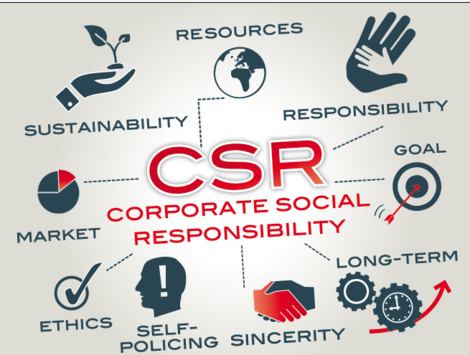Smaller, growing businesses in particular are aware they need to manage areas that affect their business reputations, as well as responding to the needs of shareholders – helping others at the same time as helping themselves.
‘CSR doesn’t have to be dull, boring community stuff and it’s not about ticking compliance boxes – it genuinely can be an exciting part of your business and needs to be viewed as a vital strategy rather than a programme,’ enthuses Steve Hilton, founder of corporate responsibility consultancy Good Business.
Peak performance
Findings from a report, Achieving High Performance: CSR at the Heart of Business, carried out by the Work Foundation support this view. The report revealed that companies placing an emphasis on CSR policy and practice gain most in terms of performance outcomes.
Stephen Bevan, director of research at the Work Foundation, believes that the challenge lies in raising the recognition that CSR represents good business practice for every function, and should not be confined to programmes conducted by a few departments in isolation from one another.
Work in areas related to your business
Software company Salesforce.com employs just over 50 people and has developed a programme called the Foundation, whereby it works with non-profit organisations, including charities, schools and after-school groups involved in youth and technology projects.
Salesforce founder Mark Benioff pledged to donate one per cent of the company’s products to the community annually, one per cent of equity to its programmes and one per cent of employee working hours to community service. Programmes include helping young women who self-harm and a film on the perception of Islam post-9/11.
‘All employees spend an hour a week or six days a year working on a community project, which range from making tea and sandwiches for the homeless to sports days. Our ‘one per cent’ model means it’s not a burden on company time,’ says Isabel Kelly, director of the European arm of the Foundation.
As Kelly explains, it makes sense to work in areas that are related to your company. ‘We are a technology company, so that has been a big factor in what we can offer. We provide mentoring programmes, where kids can spend a day in the office, testing the software. This has been a big boost for company culture – people share anecdotes about their experiences,’ she enthuses.
Gain supervisory skills
Paul Poulter is chief executive of The Trident Trust, which runs work experience placements. Most are for two weeks, but companies can also have placements for one day.
‘Employees like being engaged with young people, particularly when it involves the local community. It helps instil a work/life balance. Small businesses, particularly, may not be able to afford training programmes and can use these placements as an opportunity for introducing supervisory responsibilities amongst staff,’ explains Poulter.
Trident is carrying out a survey to find out more about what motivates employers to be involved in work experience schemes and what the barriers are.
Case Study – Promoting personal development
Ray Thorpe is founder of Thorpe and Johnson, a family-run building and construction business. His firm has taken students on work experience placements on both a long and short-term basis. His ‘number two’ in the company, who started nine years ago, was originally a work placement, and other placements have helped his permanent staff to assume new responsibilities and enhance their personal development.
‘Some youngsters don’t want to learn – they think long-term placements are just an excuse to get out of school so it’s important to get this right. We do a month’s trial with long-term placements and if they are no good, they are out,’ affirms Thorpe.
An important part of getting the process right is meeting both the potential student and parents, before the work placement starts.
‘We hold interviews before the placement – I try and encourage the parents to come so they can see what the programme involves. We’re trying to help our staff develop, and giving youngsters the opportunity to know what building work is like. We’re also trying to dispel the myth that plumbers earn £90 a day!’ enthuses Thorpe.






